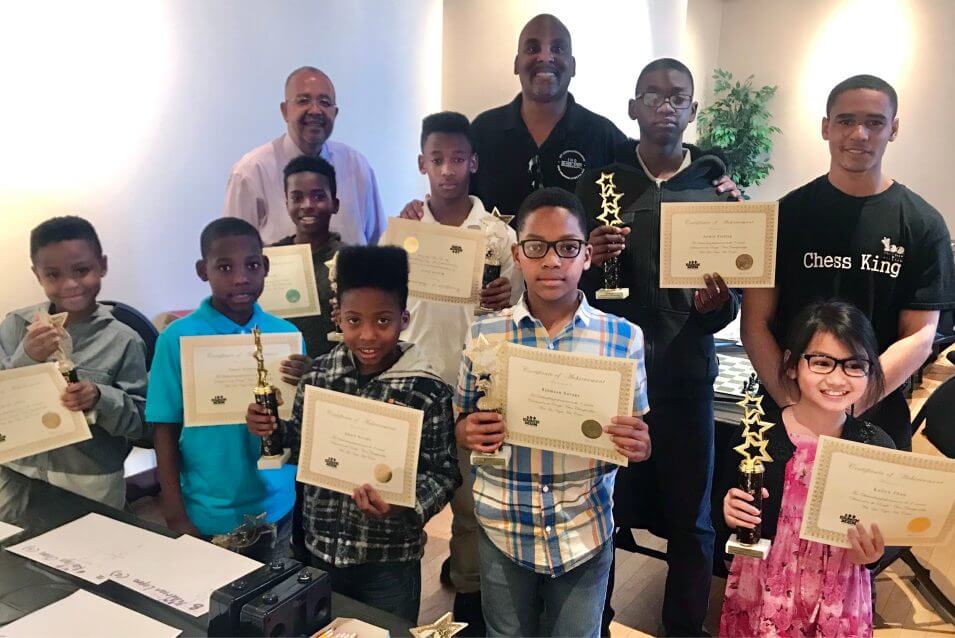News | March 5, 2021
100 Black Men of Las Vegas: Real Men Giving Real Time

In November 2020, Sands announced an initial $400,000 investment in Las Vegas community organizations working to empower minority and ethnically diverse groups, as part of the company’s commitment to diversity, equity and inclusion (DEI). The investment comes by way of Sands Cares, the company’s community engagement and charitable giving program, and focuses on removing barriers through two focus areas: education and mentoring to propel youth and promote workforce development; and social justice advancement and advocacy.
One of the recipients in this initiative is 100 Black Men of Las Vegas. “Our number one focus is mentoring youth in the community,” says Gentry Richardson, 100 Black Men of Las Vegas president and chief executive, “and we break it down into three key goals: advocating for youth, advocating for the community and being a respected voice in the community.”
100 Black Men of America was formed in 1963 by a group of prominent leaders, including Major League Baseball Hall of Fame legend Jackie Robinson. 100 Black Men of America and affiliated chapters work to improve the quality of life of and enhance educational opportunities for African Americans. Founded in 1999, 100 Black Men of Las Vegas is one of more than 100 such chapters across the country, and has made a significant impact in the Las Vegas community over the past two decades.
One signature program through which the 100 Black Men of Las Vegas pursues their goals is CrossRoads life skills and mentoring program. Developed to teach young people ages 13 – 19 how to deal with conflict, make good decisions and deal with everyday social pressures, CrossRoads addresses a number of issues facing our community. “We look out for the emotional and mental well-being of our participants and position them to succeed,” Richardson says. “We help teach them how to communicate in different situations and develop skills such as financial literacy, writing and interviewing.”
At a recent CrossRoads meeting, for example, which takes place remotely on Saturday mornings, a group of youth started the session by discussing critical thinking skills they can learn from a game like chess in their everyday lives. One youth in the meeting observed that in chess, one must think several moves ahead to have the greatest impact. Facilitators then pointed out that, just like in life, one chess move can have repercussions well down the line. From there, Nevada Attorney General Aaron Ford and former deputy police chief Michael Blow stopped by to take part in a discussion focused on having positive interactions with law enforcement and how the community and law enforcement can work together to improve relations for all.
As vital a program as CrossRoads and other programs are, Richardson said Sands’ support comes at a key time for the organization’s continued overall growth and success: “Having the resources to do what we need to do is critical. We want to make a larger contribution in the community, so we can do even more good works; that means having a standing, permanent operations base, a center of excellence.” Mr. Richardson says that when all invested parties work together – community organizations like 100 Black Men of Las Vegas, businesses like Sands and other entities – change is achieved.
Success, to The 100 Black Men of Las Vegas, means being an active part in enacting solutions to challenges facing the community. “As the saying goes, we want to be in the room where it happens. If we’re doing the right things, we will be an integral partner when decisions are being made that affect our youth and community.” That process involves both the tireless work of 100 Black Men of Las Vegas, and the dedicated support of community partners, all working together to provide for a better future.
The overarching objective of The 100 Black Men of Las Vegas is to have a generational, long-term effect. “Our mottos are: ‘What They See is What They’ll Be,’ and ‘Real Men Giving Real Time,’” Richardson said. “Our community’s youth and adults need role models. What we’re doing is planting seeds, to help our youth grow in the future. Whether it’s now, next week or four years from now, there’s going to be that ‘ah-ha’ moment, and then we know we’ve done our job. We’re planting the seeds, being patient and helping them grow.”